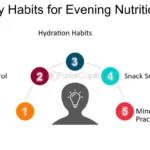Sneak Peak
“Emotional Balance” They will improve your emotional balance and health a lot. If you’re thinking about starting or want to get better at mindfulness, you’re in the right place. This guide will help you lead a happier, more balanced life.
Mindfulness is more than a passing trend. It’s a path to a better life. These practices can reduce stress, improve your emotional health, and boost your focus. They’ll also help you feel more connected to yourself and those around you. Plus, we’ll show you how to put these ideas into practice with real tips and examples.
Introduction to Mindfulness and Emotional Well-being

Mindfulness is about being in the moment. It means watching your thoughts, feelings, and the world with an open mind. Having emotional balance is key to a happy life. It helps us handle life’s challenges better. Mindfulness can improve your life. It does this by reducing stress and improving your emotions. It boosts focus, too, making you feel better. Adding mindfulness to your daily life helps you stay positive and focused.
What is mindfulness?
Mindfulness is all about being right where you are, without being stuck in the past or future. It’s like watching your thoughts and feelings from a distance with curiosity. You can learn mindfulness through meditation. You focus on your breathing or move.
The importance of emotional balance.
Emotional balance is a must for a full life. It helps us handle life’s twists better. It’s linked to caring for others and doing well at work. This helps us stay happy and avoid burnout.
How Mindfulness Can Transform Your Life
Mindfulness can improve your life in many ways. It boosts emotional intelligence. This means you can choose how to react. Health and work settings use mindfulness to fight stress and boost well-being. Plus, meditation improves focus, aids sleep, and can even control diabetes better.
You My Also Like:
Ayurvedic Morning Rituals for Holistic & Powerful Well-being 2024
Reducing Stress Through Mindfulness

Reduced stress is a big benefit of mindfulness. When you’re mindful, you watch your thoughts. You don’t get stuck in them. In short, it helps manage stress well.
Mindfulness makes you focus on the now. It stops you from worrying about the past or future. Practicing mindfulness helps you identify and stop stressful thoughts. It also makes you feel calm. This is because it lowers cortisol, the stress hormone.
Simple mindfulness exercises work well too. For example, focusing on your breathing offers a break from daily stress. It’s changed how you deal with stress, making you feel more peaceful.
Understanding the stress response.
Long-term stress can change body chemicals. This can increase your blood pressure and heart rate. It can also mess with blood sugar levels.
But there are practices to stay calm and deal with stress better. Studies show this.
Mindfulness is a useful stress-reduction tool.
Mindfulness-based stress reduction (MBSR) lasts eight weeks. Mindfulness-based cognitive therapy includes group classes and daily exercises, like MBCT. It’s helped with depression.
Over 200 studies say that mindfulness helps cut stress and depression. This makes it a powerful tool.
Practical Mindfulness Exercises for Stress Relief
Sixty-six percent of U.S. workers lose sleep from stress. This stress links to obesity and heart disease, especially in lower-income people.
Adult stress levels are going up fast in America. The stress hormone cortisol is also high. This isn’t good, as it’s linked to serious issues like cancer, diabetes, and depression.
Chronic stress makes us sleep and turn to caffeine, junk food, and alcohol. It even leads to chronic inflammation. This could cause serious health problems.
But practicing mindful breathing helps a lot. It activates our body’s relaxation systems. This can reduce stress.
You May Also Like:
10 Ayurvedic Evening Rituals for Relaxation
Improving Emotional Health with Mindfulness

Mindfulness helps manage emotions better. It shapes a more positive and balanced life view. It makes you more aware of and accepting of your feelings, easing their grip on you. It also helps you escape negative thinking. This type of thinking can worsen fear and sadness. Mindfulness also boosts self-kindness, especially in tough times. It equips your mind to handle feelings in a healthier way, acting as an emotional shield. Feeling down doesn’t make you immune to it, but you learn to cope without being swallowed by it.
Recognizing and accepting emotions.
Mindfulness invites you to watch your feelings and thoughts with a neutral eye. This insight helps you understand your deeper self. It aids in spotting automatic reactions, letting you choose.
Breaking the cycle of negative thoughts.
Mindfulness uplifts your spirits and lessens rumination and distractions. It weakens negative thoughts by not getting wrapped up in them.
Cultivating Self-Compassion
Mindfulness encourages being kind to yourself, especially during hard times. This leads to a more cheerful life view. You start handling life’s unknowns more easily.
You May Also Like:
8 Ayurvedic Detox Tips for Optimal Health
Mindfulness can enhance focus and concentration.
In today’s world, staying focused is hard. Mindfulness helps by training your mind to be present. It stops you from getting distracted. This habit of focusing on one thing at a time boosts productivity. Mindfulness also helps with memory and clear thinking. These are key for learning and problem solving. Regular mindfulness exercises are like workouts for your brain’s focus power. This makes it easier to concentrate on work, school, or any personal projects.
The Importance of Focus in Today’s World
Our world is fast and always online. We face constant alerts, social media, and tons of information. This can pull our focus in many directions, making it hard to pay attention. Learning to focus is key to making real progress in our jobs, studies, or achieving our goals.
How Mindfulness Trains Your Brain
Meditation focuses on concentration. It can help your focus, brain health, and emotional control. It works by teaching your mind to ignore distractions and self-talk. Training to focus on one thing can improve your concentration in all parts of life. One way to do this is by concentrating on your breath or a single object. This can help you reach a deep, calm focus. Regular meditation sharpens your focus. It also reduces stress and improves your thinking and feeling. It also makes you more aware and mindful. Focusing your mind can even help you sleep better.
Practical Mindfulness Exercises for Better Focus
Start with short 5-10 minute meditation sessions. Then, increase them over time. Being outside and using your senses more can help with mindfulness. Studies say so. They suggest doing these exercises daily for about six months. This way, it’s going to become a natural part of your routine.
Practical mindfulness exercises are like paying attention to your breathing. You stay present as you move. They help keep your mind clear and steady. You can make focusing a daily habit by adding these exercises to your routine. This will improve your thinking and well-being. It’s also going to boost your productivity.
You May Also Like:
What is the Seasonal Routine of Ayurveda: 7 Powerful Ways
The Heart-Healthy Benefits of Mindfulness

Mindfulness does more than calm the mind. It affects our physical health, especially our hearts. Mindfulness practice can lower stress, a big cause of high blood pressure. It brings a calm state, slowing the heart and easing heart stress. This state helps us make better choices in what we eat and how active we are, both key for our hearts. Adding mindfulness to your day also relaxes your mind. It also benefits your heart, keeping it in top shape. This lowers the chances of heart problems and makes your heart’s environment healthier.
Mindfulness Practices for Emotional Balance
Practicing mindfulness helps you sleep better. This is great for anyone struggling to catch some Zs. It’s not about sleeping longer; sleep quality is key. Mindfulness calms your mind. It reduces stress and involves a good bedtime routine. This sets the stage for a restful night.
Why it’s Quality Sleep Matters
Getting good sleep is crucial for your mood and health. Waking up refreshed, you’re better prepared to tackle your day with focus.
Mindfulness for Better Sleep
Adding mindfulness to your nights can make a big difference in how well you sleep. It removes mental clutter. This creates the perfect peaceful environment to help you drift off. Studies highlight mindfulness for its ability to boost focus. It also lessens work stress and even controls diabetes.
Establishing a mindful bedtime routine.
Adding mindful practices to your nightly habits helps. For example, focused breathing lets your mind unwind. It leads to peaceful sleep. Taking your mindfulness outdoors has extra advantages. It engages your senses before it’s bedtime.
You May Also Like:
8 Ayurvedic Skincare Secrets for Radiant and Youthful Skin
Cultivating Self-Awareness Through Mindfulness

Self-awareness is a key part of mindfulness. It is often overlooked. It helps you watch your thoughts and feelings without judging. This leads to knowing yourself better. It helps you spot how you usually react. Then, you can choose more. It’s understanding your values and what drives you that helps you act more like your real self.
This way, you can make choices that match what you want and need. That leads to a more satisfying life. Your actions will align better with who you are.
Understanding Your Inner Self
Practicing mindfulness opens your eyes to your deep self. It shows your unique parts. By watching your thoughts and feelings without judgment, you learn a lot. You’ve learned a lot about yourself.
This self-awareness lets you make choices that matter to you. You will focus on what you value and need. It’s helping you choose.
Recognizing habitual patterns.
Mindfulness helps you see how you think, feel, and act. Then, you can start to step away from reacting. This teaches you to respond to life’s ups and downs.
Discovering the reasons behind your habits helps you make choices that are good for you. You can grow as a person in a way that fits you best.
Aligning actions with values.
Practicing mindfulness connects your thoughts, emotions, and actions. It helps you understand yourself. With that self-awareness, you can make choices that speak to who you are.
When your inner world and your actions match, you feel more fulfilled. It feels right, and you act with honesty and unity.
Enhancing Relationships with Mindfulness
Practicing mindfulness can lead to better relationships. It helps you understand and feel for others. So, you respond with kindness. You learn to listen to others. This makes them feel important. This improves how you handle your emotions. It stops quick reactions that might cause trouble. When you’re mindful, you’re more aware of your thoughts and others’ needs. This strengthens your relationships. They’re key skills for good relationships with family, friends, and at work.
Cultivating Empathy and Understanding
Mindfulness teaches you to see things from others’ points of view. This understanding lets you react with care. It builds trust and openness. It lets you connect with people.
Active Listening Skills
Mindfulness makes you a better listener. It ensures others know you hear and get them. When you’re in the conversation, you notice the small details. This helps you respond with empathy and understanding. It creates stronger bonds.
Managing Emotions in Relationships
Being mindful helps you handle your feelings better. This means you can stay calm with others. You learn to spot and handle your emotions. This keeps them from harming your relationships. This self-awareness makes you better at solving issues. It leads to more stable and close relationships.
Mindfulness is for pain managem ent.
Mindfulness is a powerful tool for those with chronic pain. It changes how one experiences pain. By shifting our focus from pain to the present, it becomes easier. This practice helps to relax the body. It reduces physical tension and eases pain.
Altering the Perception of Pain
Seeing pain without the usual story or emotion brings control. It doesn’t end pain, but it helps us live better with chronic pain.
Promoting relaxation and reducing tension.
About 50 million Americans have long-term chronic pain, the CDC says. This includes back, migraine, headache, neck, and facial pain. Mindfulness has shown to cut pain perception by 30%. Emotions can make pain feel worse. It’s suggested that feelings affect how pain.
Shifting focus from pain.
Mindfulness meditation lowers the brain’s pain relay and boosts self-awareness. Twenty minutes of daily mindfulness brings big pain relief. It lowers brain areas that send pain messages. Some who practice daily have stopped or cut their pain medications.
12 Chronic pain affects both the body and mind. This shows it’s key to deal with the emotional side too.
Incorporating mindfulness into daily life.
Mindfulness goes beyond formal meditation. Bringing awareness to our daily experiences is key. Focus on your breath to practice it. Connecting with the present moment happens when you do so. Mindful eating means experiencing each bite. It can change how you view food. Walking helps. You pay close attention to how your body moves. It’s also very grounding. These practices, done during the day, help you lead a more mindful and balanced life.
Mindful Breathing Exercises
Focusing on your breath is a powerful mindfulness technique. It helps you stay present, reduce stress, and find calm by focusing on the air moving in and out of your body.
Mindful eating practices
Mindful eating means being aware of your meal. It means savoring every bite and noticing tastes and textures. It also means respecting your body’s signals. This leads to a healthier and more enjoyable connection with food.
Mindful walking and movement.
Adding mindfulness to your walks or light exercises is calming and energizing. By noting the sensations in your body as you move, you align your mind and body. This helps reduce mental clutter and boosts your focus on the now.
Adding mindful moments to your day increases your mindfulness. It makes you more centered, attentive, and enriched by each moment. It lets you experience life to its fullest.
Overcoming Obstacles to Mindfulness Practice
Starting a regular mindfulness practice can be tough. But, with the right methods, we’ve been able to beat the challenges. Stress can block us, making it hard to be mindful, especially when we’re in fight-or-flight mode. Feeling tired can also make it hard to focus, hurting our mental sharpness. And, when we’re hungry, our thoughts can drift, which is bad for staying mindful.
Dealing with Distractions
Dealing with distractions is hard for everyone, especially at the start. Big emotions can be overwhelming, pulling us from the present. Pain, in any form, can be a big hindrance. It takes effort to stay focused. Hurrying can also hurt our mindfulness, as we’ve done too much at once. Emotional Balance
Staying motivated and consistent.
Keeping up with mindfulness takes effort. Stress is our body’s natural reaction to challenges. But, too much stress can harm our health. A study of 143 people found that being in the moment can make us better at handling stress.
Finding joy in small wins and setting doable targets can keep your mindfulness habit. It’s a great way to lower stress and boost your mood. Mindfulness can do wonders for your health and well-being. Remember, it’s a process, and sticking with it is the real game-changer.
The Science Behind Mindfulness and It’s Emotional Well-being
Scientists have looked into mindfulness and its effects. They’ve found that it helps improve emotional wellness. Studies using brain scans have seen changes in the brain from mindfulness. These changes are in areas that deal with learning and emotions.
Neurological Benefits of Mindfulness
One big gain from mindfulness is better control over our feelings. Mindfulness strengthens our brain’s emotional handling. Knowing its brain benefits shows its value. We’ve then use it in our daily life with more confidence.
Mindfulness and emotional regulation.
One analysis says that mindfulness is better than other methods. It’s better at reducing negative emotions. Many studies have shown that even a little mindfulness can help. A 10-minute session can show benefits.
Resources for Deepening Your Mindfulness Practice
No matter your skill in mindfulness, there are lots of tools to boost and enrich your practice. Seventeen books from famous mindfulness experts, like Jon Kabat-Zinn, are a great start. He’s the mind behind the Mindfulness-Based Stress Reduction program. They offer smart tips and clear advice. Seventeen audio or video guided meditations are also key. They help build a steady routine and let you test out various methods of mindfulness.
Books and guided meditations.
Looking for a step-by-step guide? Books can deepen your mindfulness. Examples include “Wherever You Go, There You Are” by Jon Kabat-Zinn. Another is “The Mindful Way Through Depression” by a team of experts. Also, sites like Insight Timer and Calm have loads of meditations. They suit different levels and tastes.
Online communities and apps.
Need a community feel? Try online groups and apps focused on mindfulness. Websites like Sangha Live and Mindful.org offer classes and forums. You can meet others who are on the same path. Apps like Headspace and Calm offer guided meditations and personal plans. They help you keep up a regular practice.
Finding a mindfulness teacher or class is available.
Want something personal? Consider a local mindfulness teacher or class. Studies have proven that group therapy with mindfulness works well.
Group mindfulness meditation can match one-on-one CBT. For instance, a program for social anxiety used mindfulness activities. They were in 2-hour group sessions over 12 weeks. This mixes personal guidance with group support, making it even more powerful.
Conclusion
Mindfulness can change your life for the better. It’s a simple way to improve emotional balance and feel better. Try the eight mindfulness steps in this guide. They can lower stress and boost happiness. You will also get better at focusing. And you’ll connect more with yourself and others. Being mindful is an ongoing journey. The more you do it, the better it gets. Do it often. Live in the moment, be kind to yourself, and let mindfulness lead you to a balanced and happy life.
There’s strong proof that mindfulness is good for you. It helps control your emotions and helps your brain. The more you practice mindfulness, the more it changes your life. You’ll find your emotions more in check and will feel balanced and strong inside.
Mindfulness isn’t a passing fad. It’s key to being healthy and well. Making it part of your daily life starts you on a path. You will learn more about yourself and grow. Balance is yours to achieve. Remember, the end of this guide is a start. The real effort is in practicing mindfulness every day and seeing its benefits. Live for today, as mindfulness guides you to a life that’s more satisfying and balanced.









